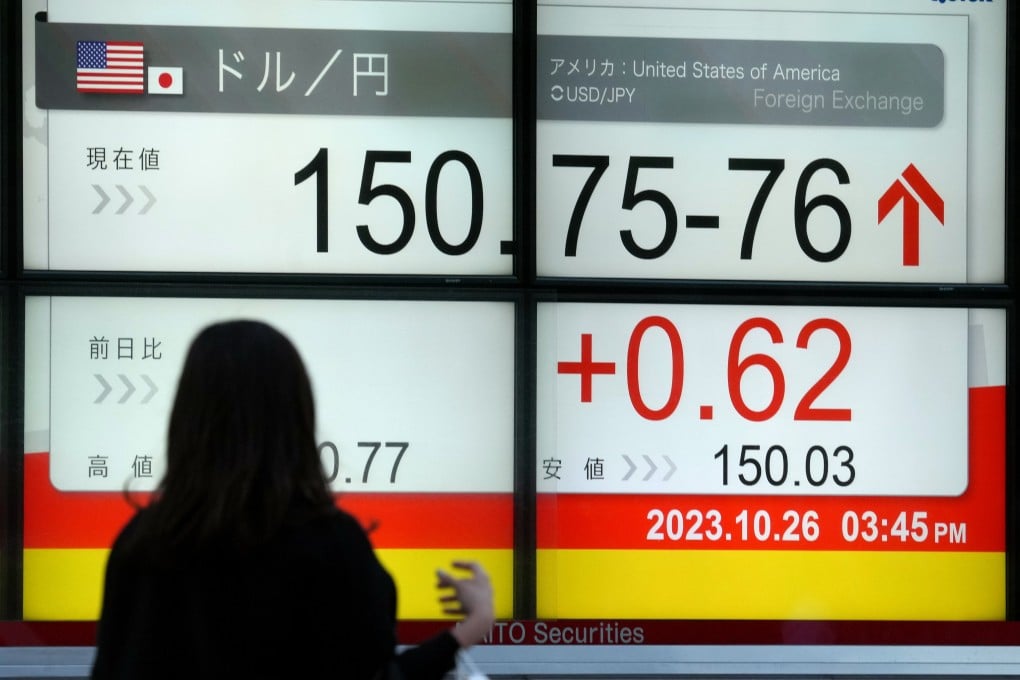Advertisement
The View | Why Japan letting the yen weaken risks stirring up global hornet’s nest
- Stand-offs between Japan and currency traders over a weak yen are nothing new, but the stakes now are higher than ever and have global implications
- If Tokyo policymakers aren’t careful, their dithering could spark devaluations across Asia and a backlash from US politicians struck with election fever
Reading Time:4 minutes
Why you can trust SCMP
1

As the Japanese yen breaks through 150 to the US dollar, investors can’t help but entertain the four most dangerous words in economics: this time is different.
Global finance has seen more stand-offs than it can count these last 25 years between Tokyo and currency traders. Japan favours a weak yen to boost exports and corporate profits while financiers often think the exchange rate has fallen too far. This fuels near-constant tension.
The stakes of the current stalemate, though, are higher than ever with the yen at 33-year lows. What happens in the days and weeks ahead – whether yen bulls or Tokyo bureaucrats win out – could be a game changer in places from Beijing to Washington and everywhere in between.
This is the first time Japan’s Ministry of Finance has tussled with speculators in what might be called the “China crisis age”. President Xi Jinping’s team has so far avoided a huge reckoning for China Inc., but 2024 is looking dicey for Asia’s biggest economy and a weaker yuan would surely help stabilise growth.
The China of 2023 has its own “this time is different” vibe. Even as top-line growth confounds sceptics, microeconomic cracks scream not to believe the hype. The default drama in the property sector, a major pillar of China’s economy, echoes Japan’s 1990s bad-loan debacle in all the worst ways.
Even as banks such as JPMorgan Chase and UBS now say China could hit this year’s 5 per cent growth target, foreign capital can’t seem to exit its markets fast enough. Look no further than the recent bloodbath in mainland tech stocks.
Advertisement
